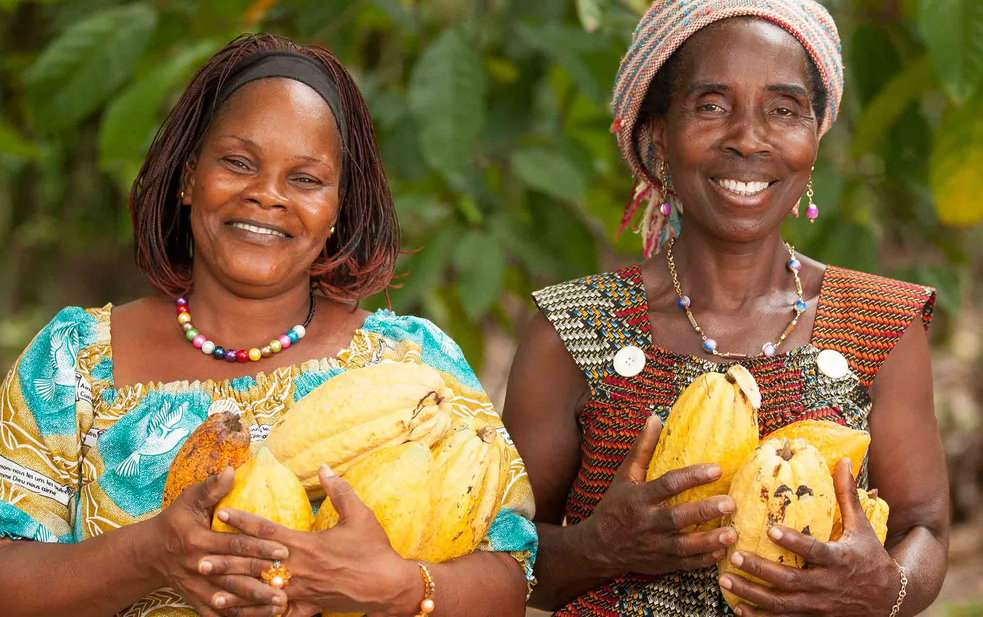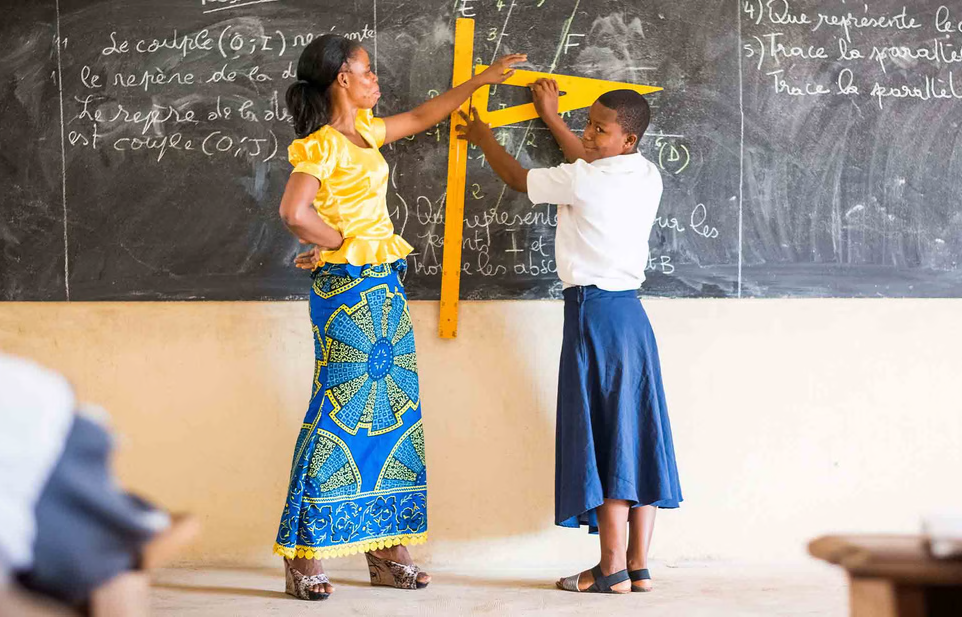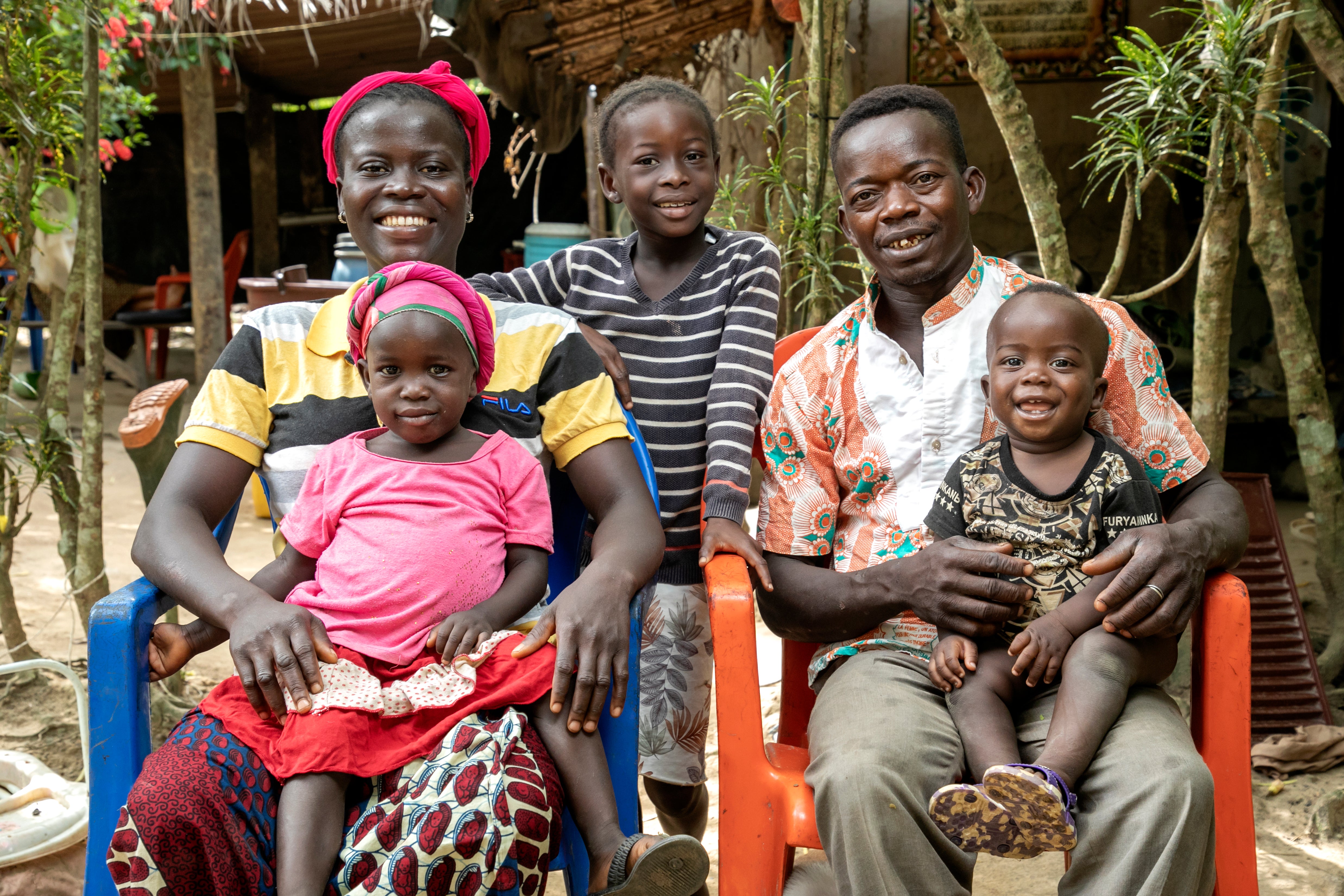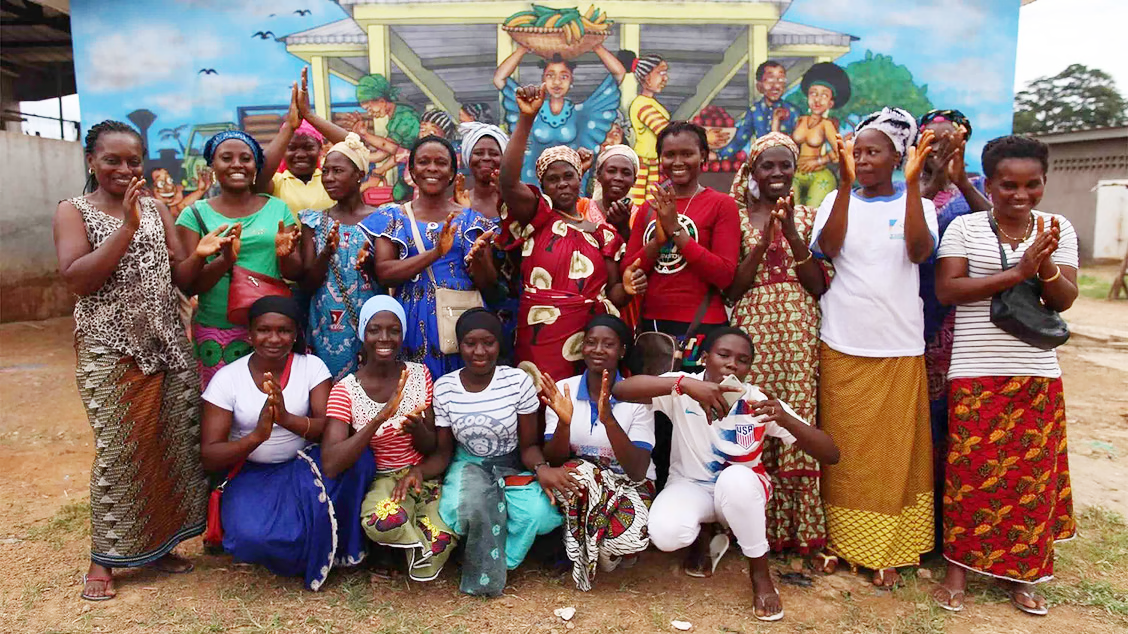The importance of she-conomics: how empowering women financially helps everyone thrive
To make effective and long-term societal change that truly empowers women, financial equity is key. Here we explore how empowering women economically benefits them, their families and communities

When it comes to enacting real change for women – helping to empower them and truly thrive in all areas of their life, from work and education to family life and self-esteem – so much stems from economic equity: having knowledge, access and control over their financial situation, and the power and opportunity to change it for the better.
With this in place, women’s security, quality of life and future potential naturally grow: allowing them greater freedom in terms of careers and education, giving them more time to pursue and achieve goals, to better support their family, both financially and emotionally, and help boost their communities. A true ripple effect in action where everyone benefits.
This is why helping to empower women financially – via initiatives that boost their knowledge around money, teach them entrepreneurial skills, and allow them to save and access funding for their own businesses and education – is central to Mars’ work in cocoa-farming communities. Since 2016, via their Galaxy brand, they have worked with CARE International in Côte d’Ivoire and Ghana, to build healthy, productive and financially stable communities where women are valued, supported and listened to.
Right now, millions of farmers are working across six million cocoa farms to meet global demand for chocolate-related products. Roughly two-thirds of the cocoa yielded will come from the Côte d’Ivoire and Ghana in West Africa – and despite women often playing an integral role in this cocoa production, their contribution is often overlooked.
In Côte d’Ivoire, women own a quarter of cocoa plantations and form around two thirds of the labour force – yet they are often denied a proper voice in the sector and seldom acknowledged as cocoa farmers within family businesses . Social norms and stereotypes contribute to this inequality by shaping power dynamics that lead to discrimination and the marginalisation of women when it comes to community decision-making.
While in Ghana, where two in 10 cocoa farmers are female, women play a central role in the industry, contributing up to 45 per cent of the labour input, particularly early crop care and post-harvest fermentation and drying – activities that are critical to improving future crop yields and production of quality beans. Yet largely this work goes unpaid, perceived instead as an extension of the family chores.
Using enterprise to empower

To tackle these fundamental issues, Galaxy has been working with global humanitarian agency, CARE International, to help boost gender equity and financial empowerment among women and their families in cocoa-rich communities, with a view to bolstering a more stable and productive wider community.
In 2016, Mars, through its Galaxy brand, working in collaboration with CARE, launched the Women for Change programme in Côte d’Ivoire, which is based on the charity’s long-serving Village Savings and Loan Association (VSLA) scheme. Wider societal change remains at the heart of the programme – including the improvement of school enrolment rates, development of business skills and the improvement of health and nutritional values.
The scheme brings women together in a self-managed and familiar setting, where they are inspired to build viable enterprises using savings, small loans and insurance facilities, as well as to share resources and improve their lifestyles.
It’s common for family groups to work and save together, with these savings being used to buy farms and launch social enterprises that can bring in much-needed income and allow women to finally take control of their own financial situation. This grassroots building of solidarity and resilience between women often grows into more widespread and influential action, giving women a voice in their local community.
“Savings and loan groups lay the critical foundation for resilience,” explains Harper McConnell, VP Cocoa Sustainability at Cocoa for Mars Wrigley . “One of its major benefits is providing access to financial resources, so members can invest in their farms, families and communities. These groups also offer a great platform to build human and social capital, which will eventually lead to empowered and thriving farming communities.”
Change that benefits everyone

Mother-of-three, Kouassi Akissi Rodiasse, benefited from the Women For Change VSLA scheme after spending her early adult years unemployed after her education was interrupted in childhood. “When my father passed away, the family refused to pay my school fees. My elder brother said that as I am a girl, I had to stop school. So, I finished school in primary third grade.”
However with the support of the VSLA, Kouassi, 30, has been able to build two businesses, boosting both her financial situation and her self-esteem, and improving her family life. “I joined the VSLA scheme when it was set up in my village four years ago. As I started to save, I was able to take out a loan, allowing my husband and I to buy a cocoa farm and build a new home. Since then I have also been able to develop my own small business selling natural juice. People respect me more. I am proud of myself, and know the VSLA will help me achieve my dreams.”
The scheme has also had a positive impact on Kouassi’s family life, from helping to fund her children’s education, to helping her and her husband communicate and bond. “Before, my husband and I used to have huge and deep misunderstandings. But with the VSLA training, we have learned to listen to one another and have more mutual respect. Now we are very close. If there is a problem we sit together, discuss it and find a solution. Now, he helps me at home, including helping to collect the water. We fight together for our future.”
Empowering women at work and home

The Women for Change program also seeks to address damaging social norms that oppress and limit women, causing issues and imbalances between husbands and wives at work and home. By creating a network of gender committees, usually made up of at least two men and two women, to champion gender equity – and holding household dialogue sessions to help women take an active role in decision making at home – men are encouraged to see joint decision-making and saving as valuable. Families are able to express their desires, needs and dreams without fear of repercussion or risk of abuse – resulting in a healthier, happier home life.
Moreover, a plan to work with families to improve nutrition, increase child protection and improve sexual and reproductive health and rights is a pillar of the scheme. A major part of this is education, which uses a ‘nutrition curriculum’ to teach parents about food groups and show how to provide a balanced diet for families. Scheme members are encouraged to invest some of their income into essential child education and health services.
The Women for Change programme has been so successful that in 2020, Mars, the owner of the Galaxy brand , pledged that they would boost the partnership with Care International by investing as much as $10 million to reach over 60,000 members in cocoa communities across Côte d’Ivoire and Ghana by 2025. In fact, they have already surpassed the goal, reaching more than 80,000 people.
In addition, Mars recently announced, through a campaign linked to its Galaxy brand, that they would commit to help one million people including women, their families and their communities thrive by 2030. “We look forward to strengthening our collaboration with CARE,” noted Global Vice President of Cocoa for Mars Wrigley, Amber Johnson, “[as] we work towards reshaping the future of cocoa and creating a more modern, inclusive, and sustainable cocoa supply chain.”
Galaxy® is committed to help one million people, including women, their families and communities thrive by 2030 via its ‘Your Pleasure Has Promise’ manifesto and vital initiatives including the Women for Change programme in collaboration with CARE and their How to Thrive series in partnership with Young Women’s Trust. Click here to find out more



Bookmark popover
Removed from bookmarks